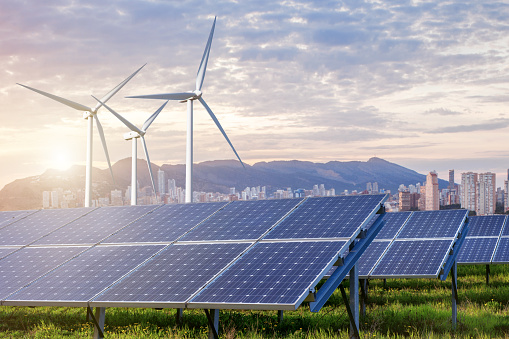Most people who are considering switching to eco-friendly solar energy to power their homes often wonder about the efficiency of solar panels. A solar energy system is a large financial investment. You want to be sure the energy output is sufficient for your needs and that you’ll get your money’s worth.
Simply put, a solar energy system is worth every penny you invest. They are extremely efficient you will get a return its value. But there are things you need to pay attention to so you get the most efficient panels for your property. After reading this, you’ll be ready to take the next steps in your solar panel purchase and installation.
Understanding Solar Panels
When shopping for solar panels and an installation company, it is wise to understand more about how solar panels work and what are the options.
A solar panel is made up of numerous photovoltaic solar cells made from materials such as silicon, a metal and glass frame, and wiring. The PV cells are linked together in the panel and convert sunlight into electricity. When sunlight hits the panel and its cells, the light energy is absorbed and the electrons from the cells escape. Metal conductive plates located on the sides of the cell collect these electrons. Then, they send these to wires where they may pass through an inverter which changes the electricity into usable alternating current (AC) electricity.
There are different types of photovoltaic solar panels and various brands, sizes and price ranges.
- Monocrystalline
- Polycrystalline
- Thin Film
Both monocrystalline and polycrystalline solar cells are very similar in performance. Thin film panels (amorphous crystalline, CIGS, and CdTe panels) are significantly less efficient but it performs better in low light conditions.
The rate of efficiency by which different types of photovoltaic solar panels convert sunlight into electricity does not range too much. The most important factor when prioritizing the efficiency of solar panels is to consider the brand quality and its warranties.
Efficiency = Wattage
Solar panel efficiency, or sometimes referred to as conversion rate, is how much of the incoming solar energy is converted into electrical power. Usually, the efficiency of your panels is calculated in wattage. It is the electrical energy the panel will generate while operating under ideal conditions. For example, a panel with a 100 Watt rating can generate 100 watt-hours of power each hour. It is good to consider that many times, the wattage affects its physical size. For example, a 200 watt panel will be about twice as large as a 100 watt one.
The most important factor to consider when shopping for a solar panel is the amount of energy in watt-hours it can produce. This means whether it will be enough to power your devices, charge your batteries, and light your LEDs under ideal conditions. In standard home environments, a 95% efficiency rate is acceptable but anything lower than that is an issue to address.
Factors That Affect the Efficiency
There are four main factors that you need to consider to get the most out of your solar panels’ efficiency:
Direction the panel is facing: Most panels are installed in a fixed position for the whole year. This directly affects the intensity of sunlight hitting the surface of the panel and the amount of energy it produces. Some panels today come with advanced sun tracking system for maximum output throughout the day, throughout the year.
Tilt or angle of inclination: The tilt of fixed panels during installation will largely depend on the latitude of the place. Again, panels that track the sun are more efficient especially in places further away from the equator.
Shading of the panel: When a small part of the solar panel is shaded, it will affect the output of the entire solar panel system installed. Dust and building and tree shadows cause the most shading. During installation, all panels must be installed where no trees or buildings shadow them and they must be regularly cleaned to remove dust.
Temperature: Contrary to what most people believe, the higher the temperature, the lower the output from the solar panels. Panels are tested and rated in ideal conditions – 25 degree temperature, 1000W/m2 insulation, and 1.5 pressure air mass. These are not close to the conditions a typical solar panel is used in a home environment, but they are a guide to what you should expect.
Conclusion
There is no better time than now to invest in a highly efficient system that will serve you for decades to come. No matter which solar panel you choose, it is an energy-efficient system that will bring value to your home and save you money.

